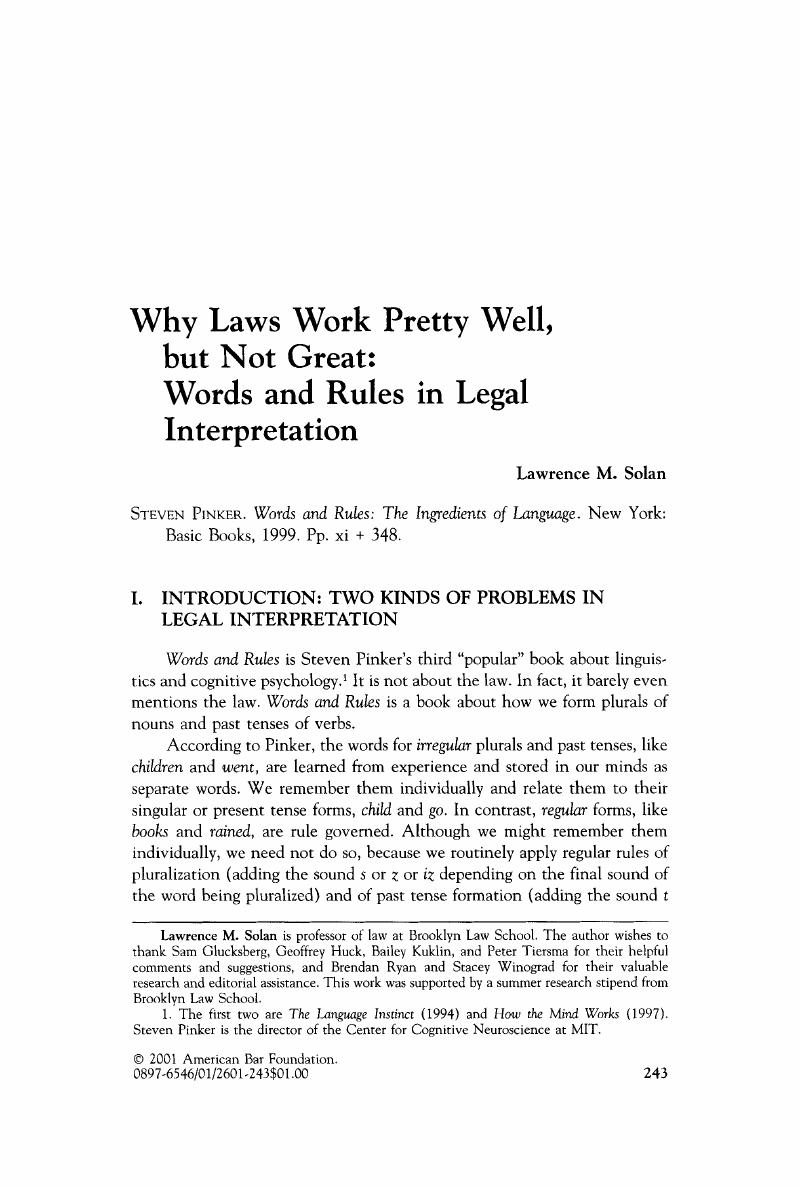Crossref Citations
This article has been cited by the following publications. This list is generated based on data provided by Crossref.
Sorensen, Roy A.
2007.
Philosophy of Logic.
p.
155.
Zeifert, Mateusz
2018.
Grammatical Issues in Judicial Interpretation – Does Legal Practice Needs Linguistic Theory? Based on Polish Courts’ Decisions.
Comparative Legilinguistics,
Vol. 34,
Issue. 1,
p.
33.
Bokota, Szymon
2021.
Defining human-animal chimeras and hybrids: A comparison of legal systems and natural sciences.
Ethics & Bioethics,
Vol. 11,
Issue. 1-2,
p.
101.



